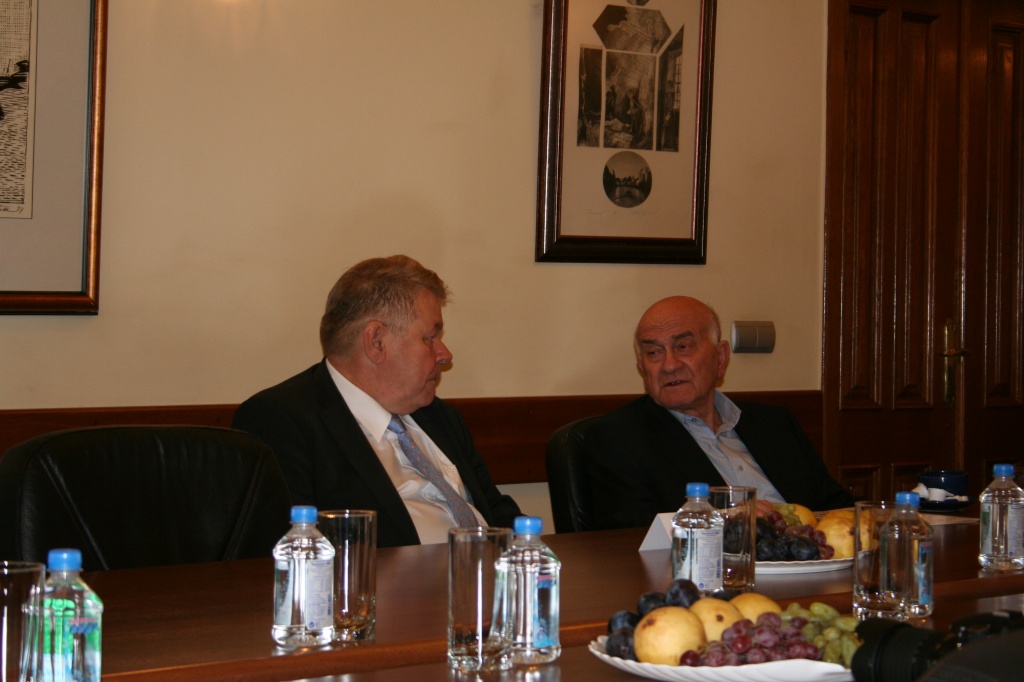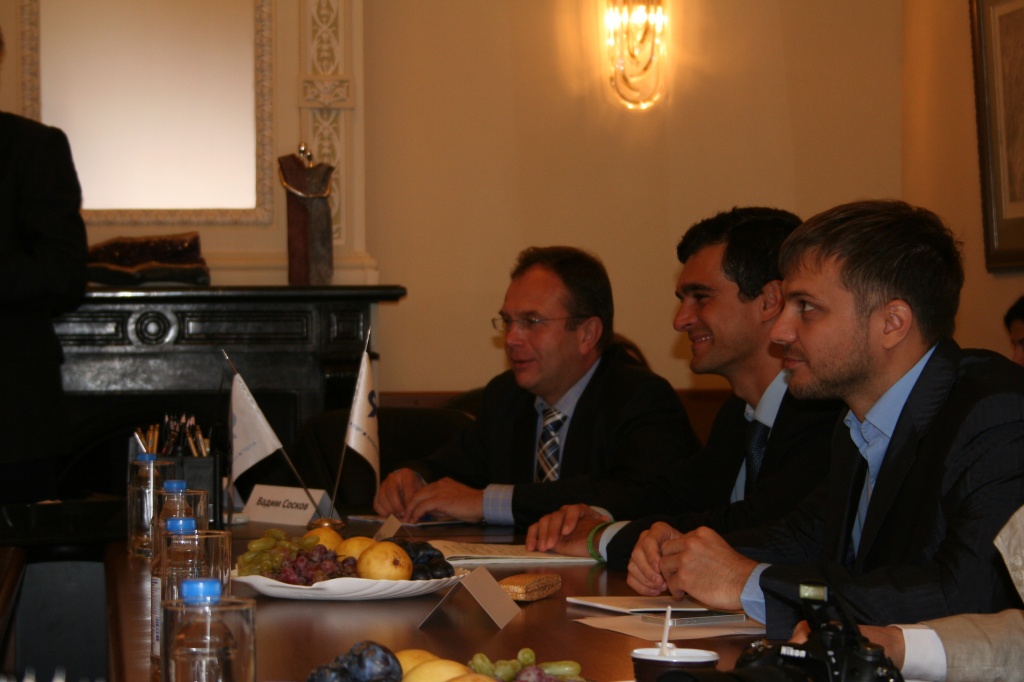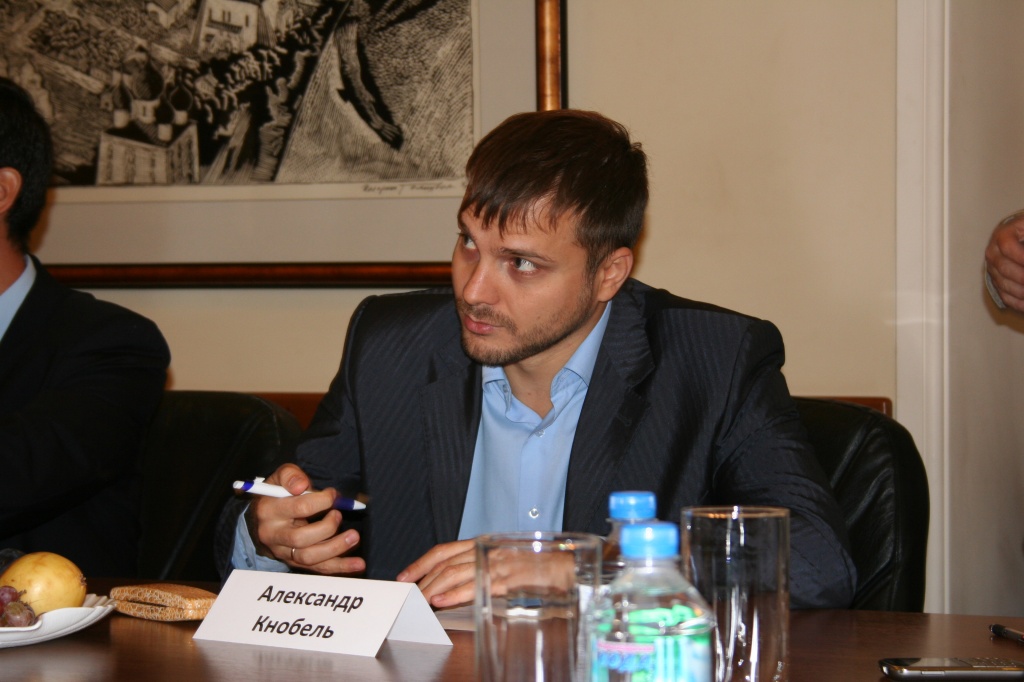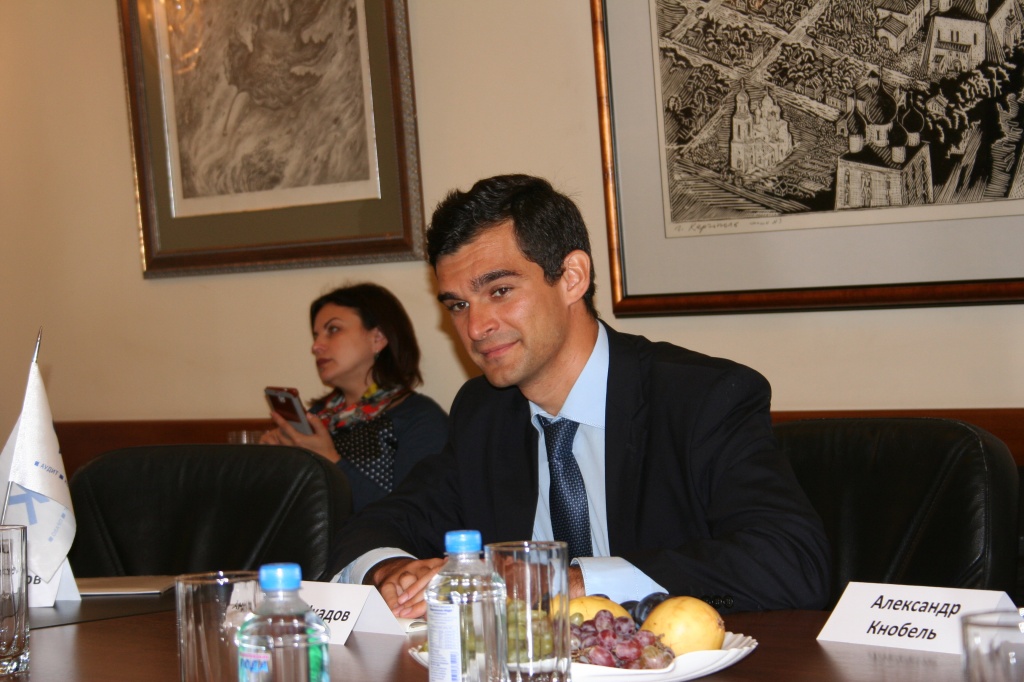Within the framework of this meeting the leading Russian economists and experts analyzed the consequences of the implementation of sanctions and the prospects for the national economy development under the new conditions.

Evgeny Yasin, research director of the National Research University of the Higher School of Economics, pointed out in his speech that in his understanding the sanctions imposed by the European countries against Russia would not affect the economics dramatically. Anyway, on the whole, that is a negative factor, he remarked. Much more damaging is the view formed in the West about Russia as an undesirable partner to cooperate with.
Seppo Remes, the head of Kiuru Company, member of the Board of Directors of Rosseti, SIBUR Holding, RUSNANO, also believes that in the short term the economic effect of the sanctions will be negligible and he even forecasts a significant growth of the Russian stock market after the situation comes to the norm. However, the expert mentioned, that in the long term the impact of sanctions may become more significant and affect the strategic trends in the national development. “The sanctions may be long”, added Seppo Remes.

Vadim Soskov, Kapital General Director, dwelt on the problem of attracting “long money” into the economics as the source of investment. He specifically focused on the pension funds used to finance the infrastructure projects as well as the proposed by Government modifications in the use of these funds, in particular, the withdrawal of the pension accumulation part. “The argument for such decision is the idea that the funds are not used efficiently. I cannot agree with this argument. Suffice it to recall that in the previous years at the expense of Vnesheconombank and NPF resources that were formed, among others, from the pension accumulations, the financing was provided for the projects of Russian Railways, Rosneft; “Magnit” trading network received funds to develop, as well as a number of similar projects”, said the expert.
On his part Oleg Buklemishev, Head of the Economic Policy Research Center under the MSU School of Economics, believes that the sanctions do have a serious impact on the economy of Russia. According to him, Russian stock market has lost about 25% of its capitalization due to the “Crimea factor”. Speaking about the diversification options for the sources of funding the expert noted that the “European” credits would hardly likely be replaced with the “Asian” – the terms of obtaining money in the Asian financial markets are less attractive. Loans in these countries are determined not only by loan interest rates and securities but also by a whole range of additional conditions, like, for example, shareholder’s control over the project, use of the lender’s equipment and staff, and so forth.

Alexander Knobel, head of the International trade laboratory under the E.T. Gaidar Institute of Economic Policy, also drew the attention of the audience to a number of negative factors resulting from the implemented sanctions. As the result of limited access to the European capital market the cost of borrowings for Russian companies raised materially. As the consequence the investments, both external and internal, into the economy reduced. The purchases of imported equipment are falling, which refers not only to that falling under the sanctions restrictions. According to the expert, the reduction by different commodity items is from 15 to 40% of purchases.

Andrew Shkadov, head of FBK Legal Commercial Practice, told the participants in the meeting about the legal aspects of the Western sanctions and the counteractions of Russia, drawing their particular attention to the differences in their toolkits: Europe focuses basically on the limited access to finances, and the effect of these sanctions began even before their official announcement, the Russian response measures are focused on the commodity markets. Analyzing the investment background, А. Shkadov noted that in his opinion it did not change at all or not essentially. “The number of referrals to our company for advice on the M&A procedures in Russia remains the same,” noted the lawyer. At the same time, according to А. Shkadov, there is a sense that the degree of trust and subjective assessment of investment risks on the part of our contractors from the West changed: they have less trust and are more wary of the adverse outcomes of transactions.
FBK Economic Club –is a unique dispute platform allowing mass media to meet with prominent economists, politicians, and officials for professional discussions on a wide range of economic issues. Within the framework of the club presentations are made of FBK analytical reports.
| Recommend | |
















